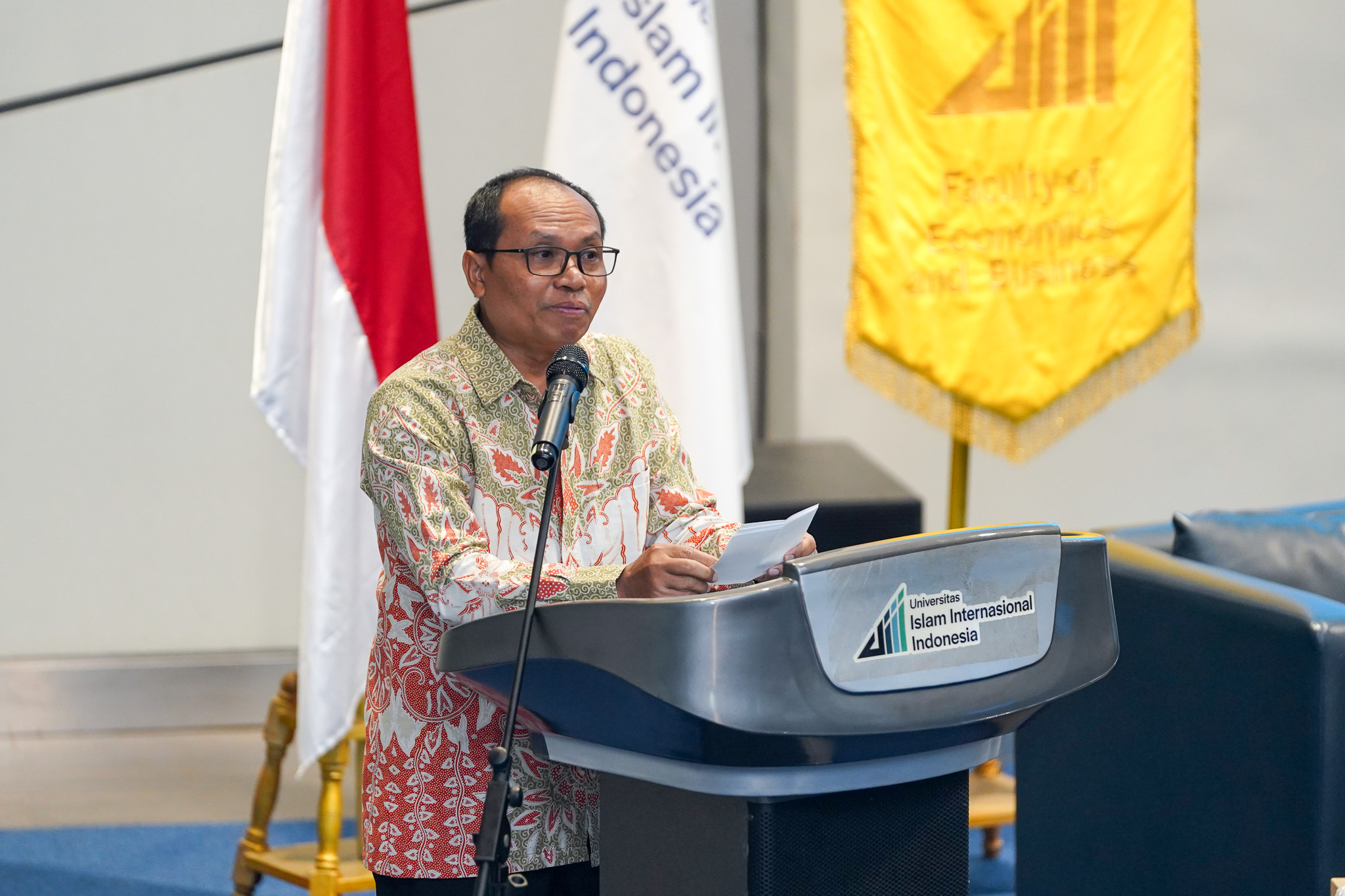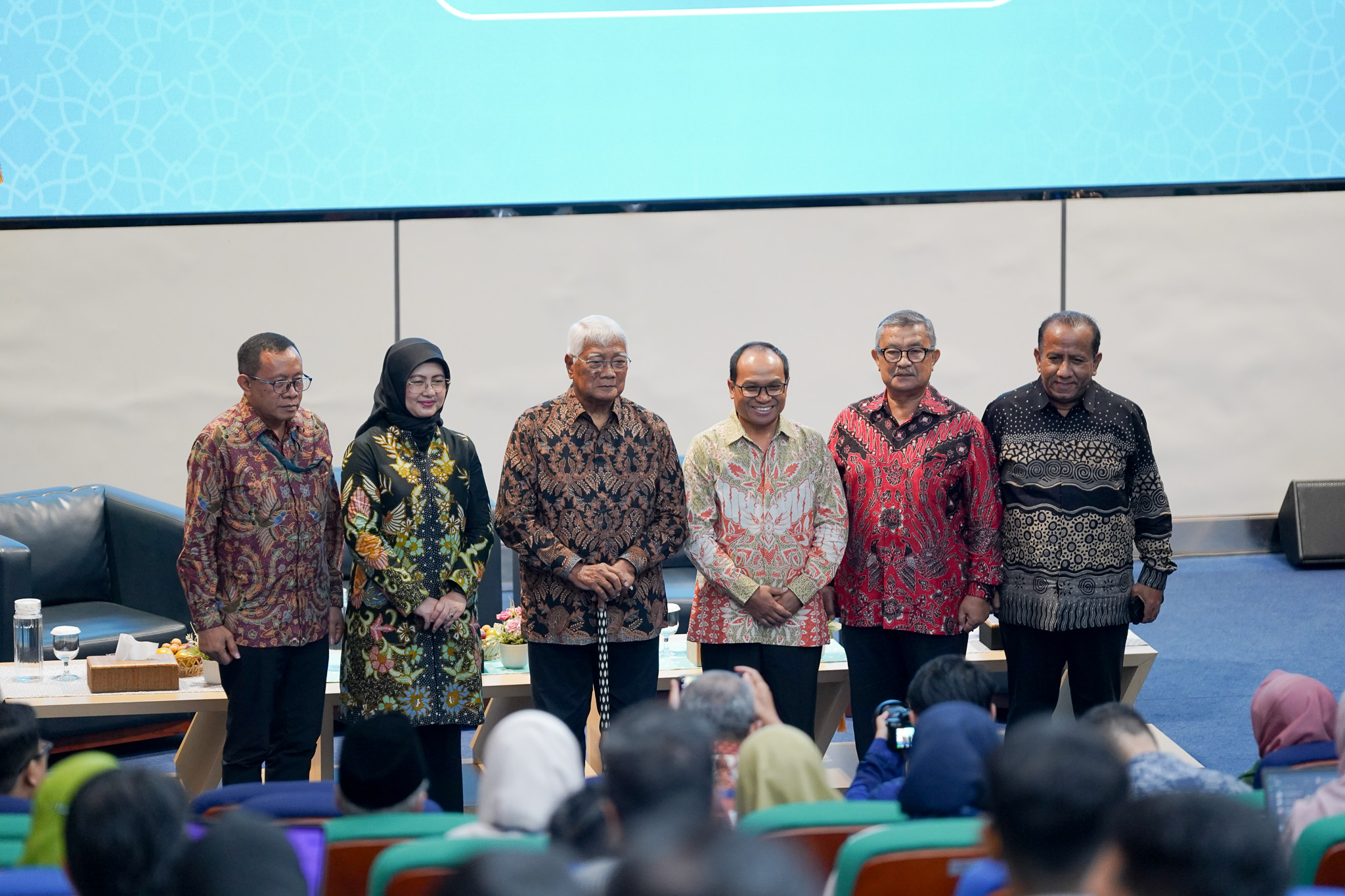May 27, 2025
by Prof. Dr. Jamhari

Picture a world where new taxes suddenly hit everyday goods—clothes, food, oil. Countries in the Muslim world, many leaning heavily on trade, could face skyrocketing import costs and shrinking demand for their exports, like oil or factory-made products. This kind of disruption sparks economic uncertainty, scares off investors, and can even shake currencies, making it tougher for nations to grow and thrive. They would need to find new trade partners and strengthen their own economies to weather the storm.
That’s the challenge we’re tackling at the 4th International Conference on Muslim World Economy and Business (ICMWEB, 27-28 May, 2025), hosted by Universitas Islam Internasional Indonesia, where I serve as rector. As someone who’s spent years studying anthropology and Muslim global politics, I see this moment as both a warning and a chance. A wave of protectionism is sweeping the globe, threatening to upend economies, especially in the Global South and Muslim world. But we can turn this challenge into an opportunity to build stronger, fairer economies.
These new trade barriers aren’t just numbers on a spreadsheet—they hit real people. For nations in the Organization of Islamic Cooperation (OIC), which rely on exporting everything from oil to textiles, higher tariffs could choke off markets and stall growth. Developing economies, still recovering from pandemics and facing climate pressures, can’t afford this kind of setback. Jobs could vanish, prices could climb, and progress could stall. But here’s the flip side: this is a chance to rethink how we do business. By teaming up with other countries in the Global South and focusing on our own strengths, we can shield ourselves from these shocks.
Indonesia’s story shows what’s possible. The Bank Indonesia Economic Report of 2024 points out that “Indonesia’s economy has shown remarkable resilience, with GDP growth projected to remain robust at around 5% in 2025, driven by strong domestic consumption and increasing foreign investment in sustainable sectors.” That’s not just luck. We’ve worked hard to diversify who we trade with, grow our Islamic finance sector, and invest in things like green energy. Other countries can follow suit, building economies that stand firm no matter what the global market throws at them.
This isn’t just about dollars and cents—it’s about people. As Amartya Sen, the Nobel Prize-winning economist, once said, “The prosperity of the poor is a more noble goal than the prosperity of the rich.”
Protectionism often widens the gap between the haves and have-nots, hitting the poorest the hardest. If we’re going to beat this, we need to put people first—investing in schools, tech, and jobs that lift everyone up, not just a few at the top.
At our conference, we’re bringing together big thinkers to wrestle with these problems. Experts like Prof. J. Soedradjad Djiwandono, who used to run Bank Indonesia, and Muhammad Lutfi, a former trade minister, shared ideas on how to keep economies strong and fair. We talked about everything from Islamic banking to new trade deals between countries in the Global South.
So, what can we do? First, let’s build stronger ties with neighbors—countries in Africa, Asia, and Latin America—who face the same challenges. Indonesia, for example, is working to expand its markets to include more trading partners, reducing reliance on any single region. Second, we need to sit down with these partners to negotiate trade terms, like tariffs, that work for everyone, fostering cooperation over conflict—what we in Indonesia call a “zero enemy” approach. Third, let’s double down on our own industries, like tech and clean energy, so we’re not at the mercy of global markets. And finally, let’s lean into Islamic finance, which offers a fairer, more sustainable way to fund growth.
Indonesia has a role to play here. We’re a bridge between East and West, and we’re committed to pushing for a world where peace and prosperity go hand in hand. These trade barriers are tough, but they’re also a wake-up call. By working together and focusing on the poorest among us, as Sen urges, the Global South and Muslim world can come out stronger.
As we gather at UIII in Depok, let’s make a promise: to build economies that don’t just survive but thrive, no matter the storm. The Global South has the heart and the know-how to lead the way. Let’s do it.

Universitas Islam Internasional Indonesia